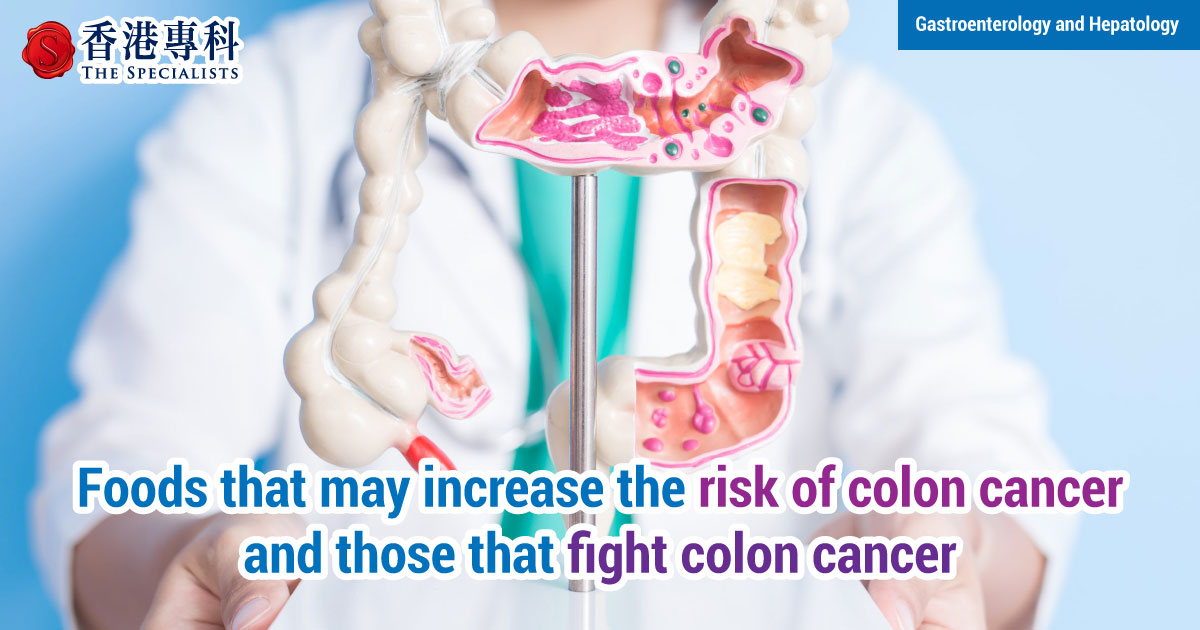Foods that may increase the risk of colon cancer and those that fight colon cancer

Today, the home cooked meals are gradually being replaced by restaurant food and fast food. Fast food which is tasty, affordable and fast, has found its way into many homes in Hong Kong. The fast food diet habits of relying heavily on meat and less on grains and vegetables, however, can cause many health problems and even trigger cancers.

Processed and red meats
Eating processed and red meats like sausages, canned meat and bacon for a long period can be harmful to health. Researchers have found that eating 50 grams of processed meat every day (which is equivalent to one hot dog or four strips of bacon) may increase your risk of colon cancer by 18 percent. If you would not give up processed and red meat entirely, you may consider swapping red meats for poultry and fish. You may try it out once or twice a week at first.
White bread
Just like processed meats, processed grains can also increase your risk of colon diseases. A milling process removes much of its nutrition, including fibre, vitamins, and minerals. Refined grains in white bread and other white flour foods are high in carbs and can increase blood sugar levels. Choosing whole grain bread and oats can increase the fibre intake and reduce the colon cancer risk.
Sugary drinks
Studies have shown the link between sugary drinks and obesity, they may cause cancer as well. The sugar in drinks can lead to chronic inflammation, and inflammation can lead to different cancers throughout the body. We would recommend you to replace your sugary drinks with water to keep healthy.
Foods that fight colon cancer
Colon cancer is preventable. There are also foods that help prevent it.

1. Whole-grains, beans, fruits and vegetables
There is consistent evidence showing that diets rich in fruits and vegetables can reduce the risk of many cancers, for example, colorectal cancer, gastric cancer, oesophageal cancer, and oral cancer.
2. Yogurt
Yogurt consumption can promote the growth of healthy bacteria in the gut. But less is known about how yogurt might impact the potential for people to develop adenomas.
*The above information is for reference only, please consult your doctor for detail.

 3405 8288
3405 8288
